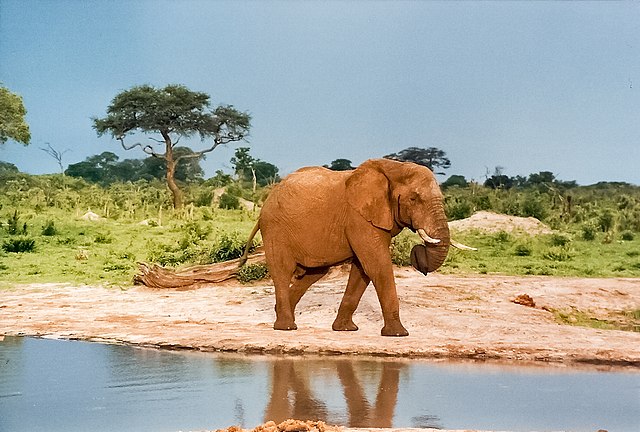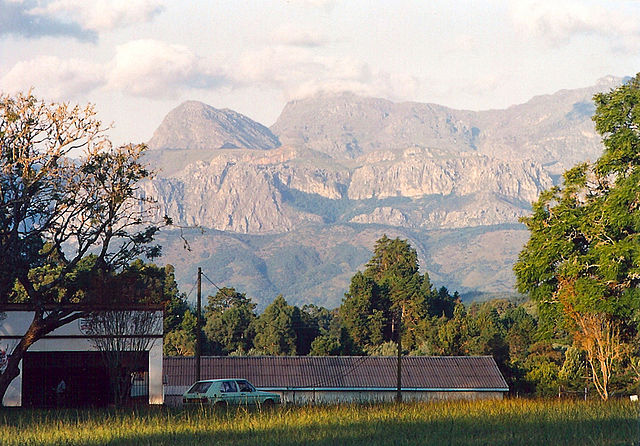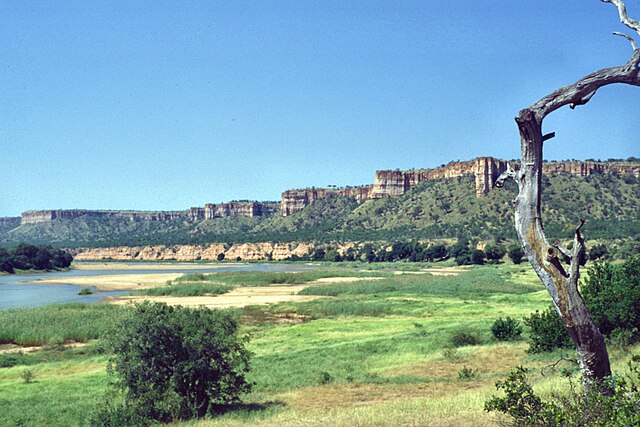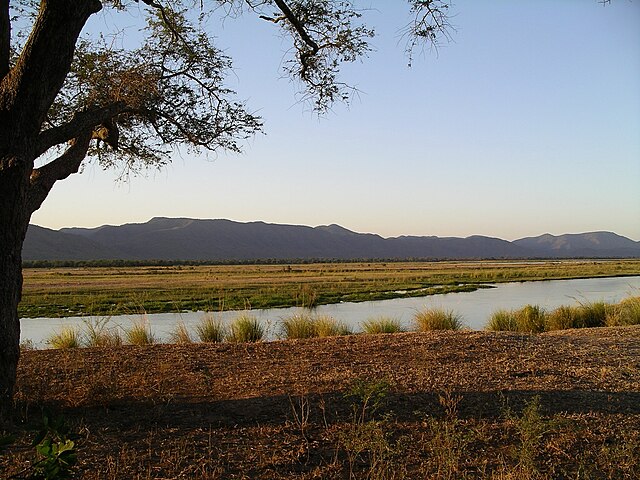What to Pack for Zimbabwe: Essential Travel Checklist for Your Adventure
Wondering what to pack for Zimbabwe? You have come to the right place. Zimbabwe is indeed an exciting place. This African country is known for its beautiful topography, rich wildlife, and amazing cultural traditions.
From witnessing the breathtaking Victoria Falls, the largest waterfall in the world, to experiencing the thrilling safaris in Hwange National Park, Zimbabwe offers plenty of adventures. This mixture of scenic beauty and traditional with modern lifestyle makes this country a unique place to explore.
However, if you’re visiting, packing wisely is important. The reason is Zimbabwe’s climate and activities vary by region and season. Whether you’re visiting warm savannas, cool highlands, or lush forests, having the essential times with you will make your trip even more comfortable.
Keep reading as this article gives you a full checklist on what to pack for Zimbabwe.
What Documents You Need for Your Trip to Zimbabwe?
So, you’ve decided to travel to Zimbabwe and plan your activities. Now, as the date of your trip gets closer, it’s time to start packing. While there are many items to bring, your documents are the most important. Among what to pack for Zimbabwe, Below are the must-have documents for the Zimbabwe trip:
Passport and Visa:
If you’re looking to enter Zimbabwe, you’ll need a valid passport with at least six months of validity remaining. Visa requirements vary by nationality. Some travelers can get a visa on arrival, while others need to apply before their trip.. So, check your specific visa requirements and have any necessary documents ready. Also, keep your passport secure, ideally in a travel pouch that you can wear beneath your clothes.
Vaccination Certificate:
Travelers from a few countries may need to show a yellow fever vaccination certificate when they arrive. Be sure to consult with your doctor or a travel clinic to find out which vaccines you may need.
Travel Insurance:
Since healthcare facilities can be limited in remote areas of Zimbabwe, it is important to have travel insurance that includes medical evacuation. Look for policies that cover activities you plan to participate in, such as safaris or adventure sports.
Copies of Important Documents:
Make sure to keep both digital and printed copies of your passport, visa, and insurance details. We’d highly advise you to save them on your phone and in a cloud service. This is how you can easily access them, even if you lose the originals.

Money and Travel Essentials
Zimbabwe has specific monetary practices and logistical needs that travelers should be prepared for:
Cash in US Dollars:
US dollars are widely accepted in Zimbabwe, especially in rural areas where ATMs and card machines may be scarce. Small bills are useful for daily expenses and tips. So, carrying a mix of $1, $5, $10, and $20 notes will help you avoid challenges with change.
Credit Card (Visa):
While some urban businesses accept credit cards, Visa is the most widely accepted. Bring a Visa card and keep it as a backup, as not all vendors accept Mastercard or American Express.
Reusable Tote Bags:
Plastic bags are banned in Zimbabwe, so bring reusable tote bags for shopping and carrying personal items. Additionally, consider packing a few small bags within your tote for convenience and to keep your items organized.
Notebook and Pen:
These are practical for jotting down details or for cultural exchanges. Some local phrases in Shona or Ndebele, Zimbabwe’s most spoken languages, can be helpful to learn and remember.
What to Wear in Zimbabwe: Clothing Tips
Zimbabwe’s climate can change dramatically depending on the season and region. That’s why it’s important to pack clothes that can adapt to different conditions. Make sure to pay extra attention and don’t miss out on anything.
Let us give you some helpful clothing tips to get you ready:
Lightweight, Breathable Fabrics:
Daytime temperatures can be very hot, so pack lightweight, breathable clothing made of cotton or linen to stay comfortable. Neutral colors like khaki, olive, or beige are ideal for safaris. It helps you mix in and avoid attracting wildlife.
Warm Layers for Evenings:
Evenings, particularly in winter or in highland regions like Victoria Falls, can be surprisingly cool. Bring a few warm layers, such as a fleece jacket or sweater, to stay comfortable in cooler temperatures.
Comfortable Footwear:
For safaris and outdoor activities, hiking boots are essential. Bring sturdy sandals or trainers for casual outings and city visits.
Rain Jacket or Poncho:
Zimbabwe’s rainy season spans from November to March. If you’re planning to visit in the rainy season, don’t forget to pack a waterproof rain jacket or poncho as these are must to stay dry during sudden downpours.
Swimwear:
If you’re staying at a hotel or resort with a pool, or plan to do water activities, remember to pack your swimsuit for a refreshing swim

Which Technology and Gadgets Should You Pack for Zimbabwe?
To make the most of your trip, you should bring the right technology essentials, like:
Power Bank:
Sometimes, there’s no electricity in some places. A power bank is important to keep your phone or tablet charged when you’re out exploring or camping.
Adapter and Converter:
In Zimbabwe, the plugs are different. They use a 3-pin plug (Type G), so you’ll need an adapter to use your devices. If your gadgets don’t work on different voltages, bring a converter too.
Camera and Binoculars:
Zimbabwe’s wildlife and landscapes are spectacular, so a good camera and a pair of binoculars can help you capture the details. If you’re passionate about photography, bring an extra memory card and batteries to avoid running out of space or power.
Unlocked Phone with International SIM:
If you want to stay connected affordably, bring an unlocked phone and purchase a local SIM card upon arrival. But why? This allows you to use local data services, which can be much cheaper than international roaming.
What to Pack for Zimbabwe: Must Pack Health and Hygiene Supplies
Health and hygiene supplies are crucial for having a safe and enjoyable travel experience in Zimbabwe:
Personal Medication and First Aid Kit:
Pack enough of any prescribed medications, along with a basic first aid kit that includes bandages, antiseptic wipes, and pain relievers.
Malaria Prophylaxis:
Many areas of Zimbabwe are high risk for malaria, especially during the rainy season. Consult a healthcare provider before your trip for antimalarial medications, and follow the prescribed regimen.
Sunscreen and Bug Repellent:
With Zimbabwe’s intense sun and insect presence, pack a high SPF sunscreen and a DEET-based insect repellent to protect against sunburn and insect bites.
Hand Sanitizer and Wet Wipes:
In some places, there might not be water or soap, so bring hand sanitizer and wet wipes to keep your hands clean when you can’t wash them.
Toiletries:
You might not find your favorite brands in Zimbabwe, so it’s a good idea to bring your own things like toothpaste, toothbrushes, soap, and other personal items you use every day.

What are the Essential Gear for Safari and Adventure Activities?
If you’re planning a safari or other adventurous outings, the following items are indispensable:
Daypack:
A daypack is great for carrying essentials like water, snacks, sunscreen, and binoculars during safaris or hikes.
Water Bottle:
It’s important to stay hydrated, particularly in Zimbabwe’s hot climate. Pack a sturdy, reusable water bottle that you can refill throughout the day.
Sunglasses and a Hat:
These are crucial for shielding yourself from the sun. Opt for sunglasses that block UV rays and a wide-brimmed hat to provide additional shade.
Lightweight Scarf or Bandana:
A scarf or bandana can protect against dust, especially on game drives, and can also be used to keep cool in the heat.
Headlamp or Flashlight:
Rural areas often have limited lighting, so a headlamp or flashlight can be invaluable, especially if you’re camping or staying in remote lodges.
What to Pack for Zimbabwe: Some Optional Items for a Unique Experience
If you want a better travel experience, there are some helpful things to bring along. Among those, you should have a travel guide or language book, like for Shona or Ndebele, which can make a big difference. Also, when you know a few words or phrases, it can help you talk to locals and understand their culture more. Even just asking for directions in the local language shows respect and makes your trip more special.
Also, if you’re going to remote places protein bars, and snacks are a good idea. They’re easy to carry and keep you full when fresh food isn’t available. For environmentally-conscious travelers, consider packing biodegradable soaps and shampoos to minimize waste. This is great if you’re staying in eco-lodges or camping. These simple things can make your trip more comfortable and sustainable. Out of what to pack for Zimbabwe these items not that important but really helpful.
Conclusion
Overall, knowing what to pack for Zimbabwe is a must. Start with key documents like your passport, visa, and travel insurance. We’d recommend bringing US dollars and a reusable tote bag, as plastic bags are not allowed. If you’re planning to visit in summer, pack light clothes, a jacket for cooler nights, sturdy shoes, and a raincoat for rainy weather. Don’t forget your camera and binoculars for sightseeing and wildlife, because capturing moments is necessary. Also, pack medicine, sunscreen, and bug spray to stay healthy and comfortable.
Bring a water bottle, hat, and sunglasses for sun protection. If you’re going on safari or hiking, a daypack and flashlight will be helpful. You have to adjust your packing based on your activities.
Most importantly, enjoy your trip, respect Zimbabwe’s nature, and have a great adventure.
